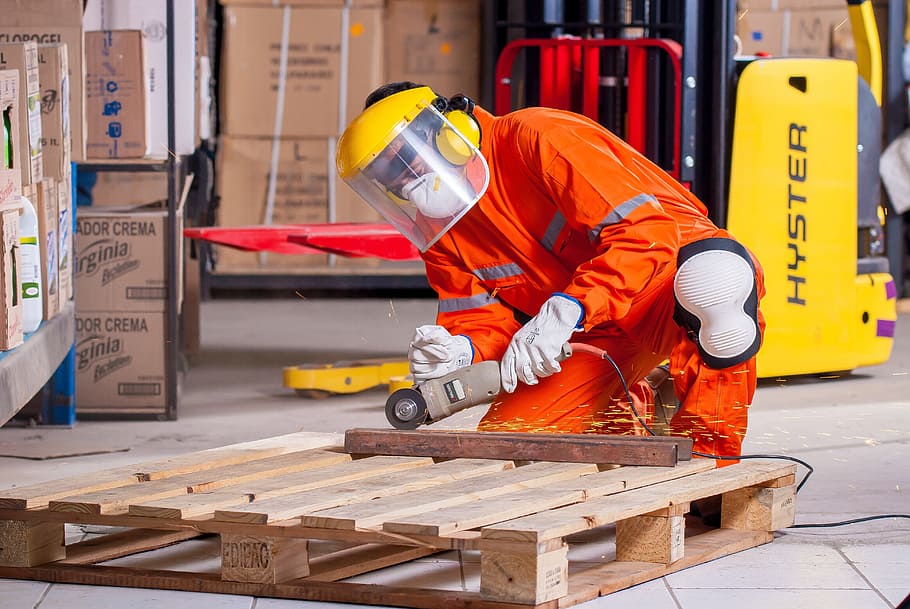Construction sites, factories, and bustling workshops are full of loud, relentless noise. While many workers take precautions, the risk of noise-induced hearing loss (NIHL) is a serious reality for those in noisy trades. This type of hearing loss is gradual and irreversible, making it essential to understand the dangers and how workers’ compensation insurance can provide a safety net for those affected.
In this blog, we’ll explore NIHL, why it’s so dangerous for those in the trades, and how workers compensation insurance can offer support if your hearing is compromised on the job.
How Is Industrial Hearing Loss Covered by Workers Comp?
Workers’ compensation provides a vital safety net for those suffering from industrial hearing loss. Understanding eligibility, compensation types, and state-specific variations is key to securing industrial deafness claims.
Eligibility: Thresholds of acceptable noise levels (decibels) for Australia, length of exposure needed
- Noise Levels: Australian standards define hazardous noise as an average of 85 decibels (dB) or higher over an 8-hour workday. Peak noise levels above 140 dB can cause immediate damage.
- Exposure Time: The risk of hearing loss depends on both the intensity of the noise and the length of exposure. The longer you’re exposed to loud noises, the higher the risk of permanent hearing damage.
Type of Compensation: Not just hearing aids, potential coverage of lost wages, retraining if the condition is work-disabling
Workers’ compensation for industrial hearing loss goes beyond just providing hearing aids. You may also be eligible for:
- Medical Expenses: Coverage for hearing tests, specialist consultations, and ongoing hearing aid maintenance or replacements.
- Lost Wages: If your hearing loss prevents you from working, you may receive income replacement benefits.
- Retraining: In cases of severe work-disabling hearing loss, support for retraining into a new field might be available.
- Lump Sum Compensation: Some states offer lump sum payments for permanent impairment due to industrial hearing loss.
Get a free quote today.
 Variations by State
Variations by State
Here are additional variations across Australian states regarding industrial deafness claim and workers compensation policy:
- Queensland: Queensland operates on a stricter standard, requiring not only a 10% hearing loss but also evidence of further deterioration for lump sum impairment benefits.
- New South Wales (NSW) and Victoria: Both NSW and Victoria use a graduated scale for assessing hearing loss, meaning the compensation amount increases along with the percentage of hearing loss. In these cases, workers may be eligible for lump sum payments, with the amount directly tied to their level of impairment.
- South Australia (SA) and Western Australia (WA): Similar to NSW and Victoria, SA also has a graduated scale for assessing hearing loss and provides lump sum benefits based on impairment levels. In WA, specific criteria are used for permanent impairment assessments, making it important for claimants to understand how their degree of hearing loss determines compensation.
- Tasmania and Northern Territory (NT): Tasmania’s scheme focuses on the percentage of hearing loss for compensation, allowing workers with qualifying impairment levels to receive lump sum payments. In the NT, a 5% binaural hearing impairment is required for compensation, governed by the Workers Rehabilitation and Compensation Act.
- Australian Capital Territory (ACT): The ACT has a specific requirement of 6% hearing loss (often referred to as boilermakers’ deafness) outlined in the Workers Compensation Act.
Consulting a legal professional can help you understand the complexities of the process and ensure you receive the full compensation you deserve.
Proving Your Hearing Loss Is Work-Related
When filing a workers’ industrial hearing loss compensation claim for industrial hearing loss, the burden falls on you to prove the connection between your condition and your job. This is where thorough documentation and expert assessments become crucial.
Baseline hearing tests conducted when you first start in a noisy environment offer a valuable reference point. If subsequent tests show deterioration, this strengthens your case by demonstrating a decline in hearing over the course of your employment.
Importance of Baseline Testing, Record-keeping, and the Role of Audiologists
Detailed records are your best defence in a hearing loss insurance claim. Keep track of the types of noisy environments you work in, the duration of exposure, and any hearing protection used.
Audiologists play a pivotal role. They conduct specialised hearing tests, evaluate the extent of your hearing loss, and offer expert opinions on the likely cause. Their reports are vital pieces of evidence to support your workers’ compensation claim and establish the work-related nature of your condition.
Click here to learn about Emerging trends in workers’ compensation insurance in Australia in 2024
 What Does Workplace Hearing Loss Compensation NOT Cover
What Does Workplace Hearing Loss Compensation NOT Cover
When it comes to workplace hearing loss compensation in Australia, certain aspects may not be covered by insurance. Let’s explore these exclusions:
- Pre-existing Hearing Issues: If you started your job with some hearing impairment, your workers’ compensation claim might face challenges. It’s essential to distinguish between pre-existing conditions and work-induced hearing loss. However, don’t assume you’re automatically disqualified – if your job significantly worsened the existing hearing loss, you may still have a valid claim.
- Hearing Loss Outside Work: Workers’ compensation insurance is designed to protect you from hazards within your workplace. If your hearing loss stems from hobbies, ageing, or other factors unrelated to your job, it’s unlikely to be covered. Insurance primarily addresses the impact of occupational noise exposure.
- Neglecting Proper Safety: Employers must provide hearing protection, but it’s your responsibility to use it correctly and follow safety procedures. Blatant disregard for safety measures could jeopardise or reduce your compensation. Workers’ compensation operates on a shared responsibility model, where both employers and employees play a role in preventing harm.
- Other Factors:
- Ototoxic Chemicals and Drugs: If certain medications or chemicals at work interact with noise to worsen your hearing, fully attributing your hearing loss to noise exposure can be complex. Compensation may not cover the full extent of damage in these mixed-cause scenarios.
- Age-Related Hearing Loss: Differentiating between natural age-related hearing decline and the impact of years in a noisy job is important. Insurance generally seeks to compensate for the work-related component of hearing loss.
- Prior Employers: Multiple jobs with noise exposure can complicate claims. Typically, liability falls on the last employer who exposed you to damaging occupational noise, but determining precise contributions from each employer may require expert evaluations.
Protecting Your Trade & Hearing: Preventative Measures Matter
Protecting Your Trade & Hearing: Preventative Measures Matter Investing in hearing protection and advocating for safe work environments is crucial for tradies. Workplace policies like noise reduction programs, mandatory hearing protection, and regular audiometric testing make a difference.
Tradies can also proactively limit noisy activities outside of work, use noise-cancelling headphones when possible, and take breaks in quiet areas. While these measures might have upfront costs, they are a worthwhile investment compared to the long-term costs of hearing loss, both financially and in terms of quality of life.
Noise-induced hearing loss is a serious threat to your ability to work and your overall well-being. Don’t let it catch you off guard. Understanding the risks, your rights under workers’ compensation insurance, and the importance of documenting your exposure is essential. If you suspect your hearing has been impacted by your work, don’t hesitate to seek a hearing evaluation and explore your options for compensation.
For more resources, in-depth evaluations, and support in navigating workers’ compensation, Contact us at Tradies365.
Or
Get a free quote today.
Note: The material offered here is for informational purposes only. It does not constitute legally binding advice and should not be a substitute for a consultation with an insurance expert.

 What Does Workplace Hearing Loss Compensation NOT Cover
What Does Workplace Hearing Loss Compensation NOT Cover